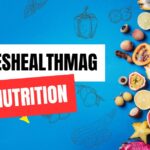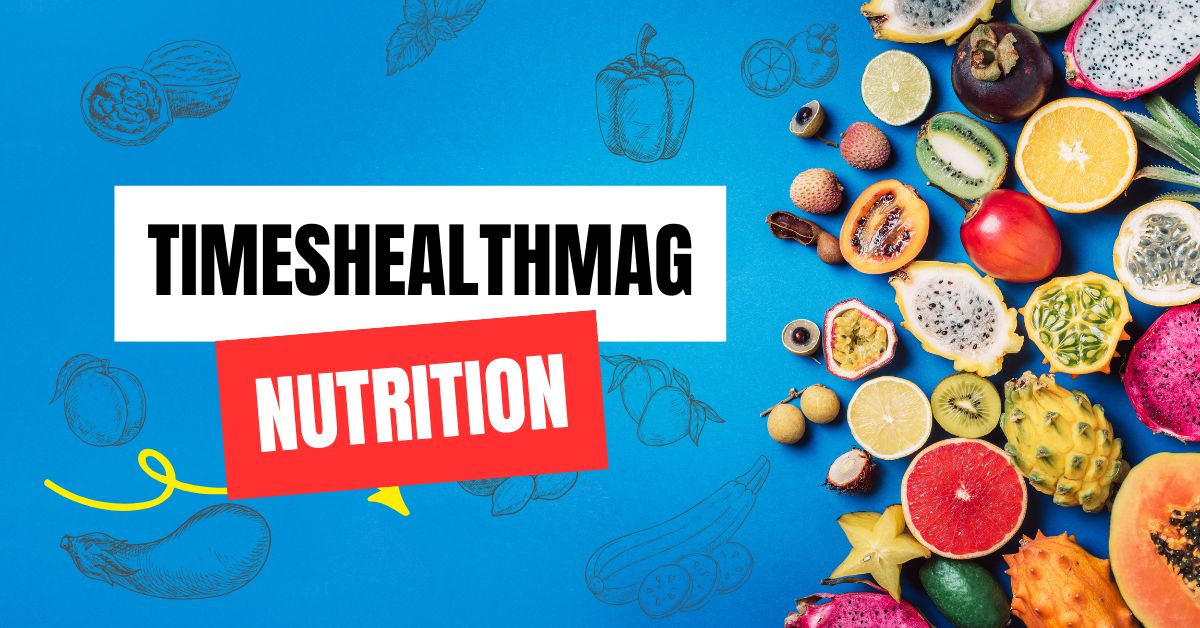Timeshealthmag Nutrition is an emerging hub for reliable, science-backed nutrition content tailored for everyday readers. Unlike generic platforms that often recycle vague dietary advice, Timeshealthmag.com consistently delivers updated articles, expert interviews, and evidence-based wellness guidance.
Compared to other platforms like Health line or WebMD, Timeshealthmag emphasizes frequent content updates and user-friendly tools like meal planners and nutrient trackers. Its content strategy aligns with today’s reader expectations: practical, clean, and informed by science, not trends.
Core Principles of Healthy Eating
Macronutrients & Micronutrients
Understanding what your body needs starts with balancing macronutrients:
- Carbohydrates :- Prefer whole grains, fruits, and vegetables for fiber and steady energy.
- Proteins :- Incorporate lean meats, legumes, and dairy.
- Fats :- Healthy fats like olive oil, nuts, and avocados support brain and heart health.
Micronutrients, including vitamins and minerals, play key roles in energy production, immunity, and bone health. Foods like leafy greens, dairy, nuts, and seeds ensure daily micronutrient intake without needing supplements.
Importance of Hydration
Hydration is more than just water intake. According to the WHO, optimal hydration supports nutrient transport, digestion, and cognitive function. Aim for 8–10 glasses of water daily, and include hydrating foods like cucumbers and watermelon.
Embracing Whole Foods
Whole foods are unprocessed or minimally processed ingredients like fruits, vegetables, legumes, and whole grains. These foods retain fiber, antioxidants, and natural nutrients that support digestion and reduce inflammation. Platforms like USDA and Nutrition.gov stress the importance of whole foods in preventing chronic diseases.
Unique Angles & Content Gaps
While many nutrition sites focus on calorie counting or trendy diets, Timeshealthmag introduces fresh angles:
- Interactive tools such as meal planners, food diaries, and nutrient checkers.
- Mindful and intuitive eating strategies, helping users reconnect with hunger cues and avoid emotional eating.
- Seasonal and affordable super foods, like spinach in winter or watermelon in summer, with simple recipes anyone can follow.
These elements differentiate Timeshealthmag from platforms that lack personalization or practical usability.
Popular Nutrition Trends
Plant-Based & Mediterranean Diets
Both diets are repeatedly ranked among the healthiest. Backed by Harvard and U.S. News, these eating patterns promote longevity, heart health, and sustainable living. Plant-based doesn’t mean vegan it includes prioritizing plant foods over animal products.
Intermittent Fasting & Gut Health
Intermittent fasting (IF) focuses on when you eat, not just what. Studies show IF supports weight management and insulin sensitivity. Coupled with gut-friendly foods (like yogurt, kimchee, and oats), this trend promotes a healthy micro biome.
Myth-Busting: Facts Over Fads
Timeshealthmag actively debunks myths like:
- “All carbs are bad” False. Whole carbs provide fiber and sustained energy.
- “Fats make you fat” Inaccurate. Unsaturated fats are essential for hormone production and cell function.
Practical Daily Tips & Tools
- Mindful eating: Slow down, chew thoroughly, and eat without distractions.
- Quick, healthy recipes using everyday items like berries, leafy greens, fatty fish, and whole grains.
- Grocery shopping hacks: Plan meals before shopping. Stick to outer aisles for whole foods. Avoid shopping hungry.
- Meal prep strategies: Cook in batches, use containers, and freeze extras.
Boosting Trust & Engagement
- Expert content: Articles reviewed by certified dietitians and health professionals.
- Tools: Calorie calculators, portion control guides, and food logs support sustainable habits.
- Science-driven: All advice links back to peer-reviewed journals, government recommendations (like USDA, WHO), or academic research.
Quick Daily Reminders
- Use whole grains, legumes, and fish 2–3x per week
- Prioritize fruits and vegetables (400 g/day) per WHO
- Drink 8–10 glasses of water daily
- Include healthy fats (avocado, nuts, olive oil)
Conclusion
Timeshealthmag Nutrition provides a balanced, practical approach to eating that’s rooted in science not diet culture. By embracing whole foods, mindful practices, and evidence-backed tools, anyone can build a healthier relationship with food. Start with small steps today perhaps a veggie-filled lunch or a quick water intake boost. Your health journey begins with one good choice.







